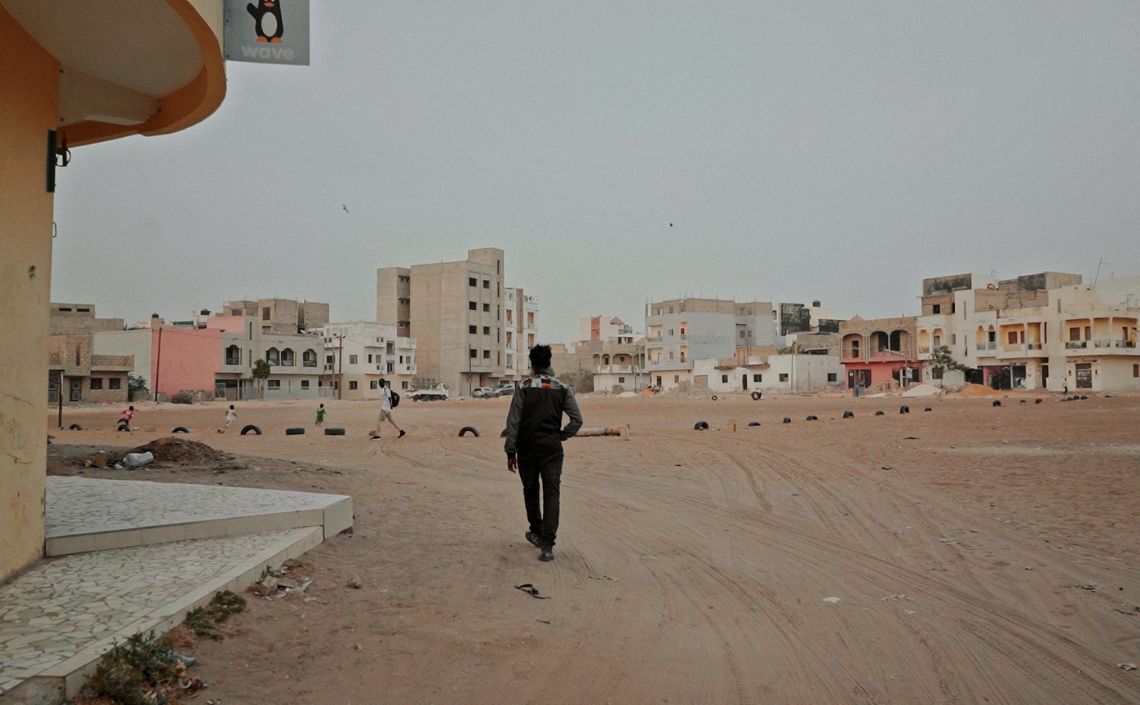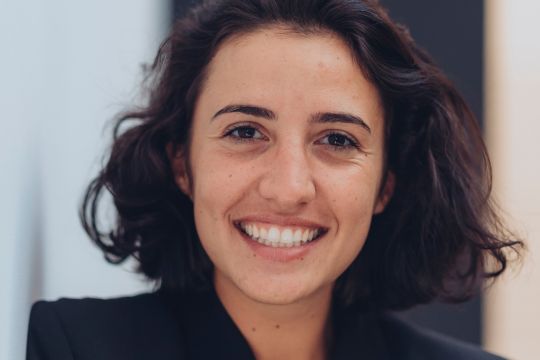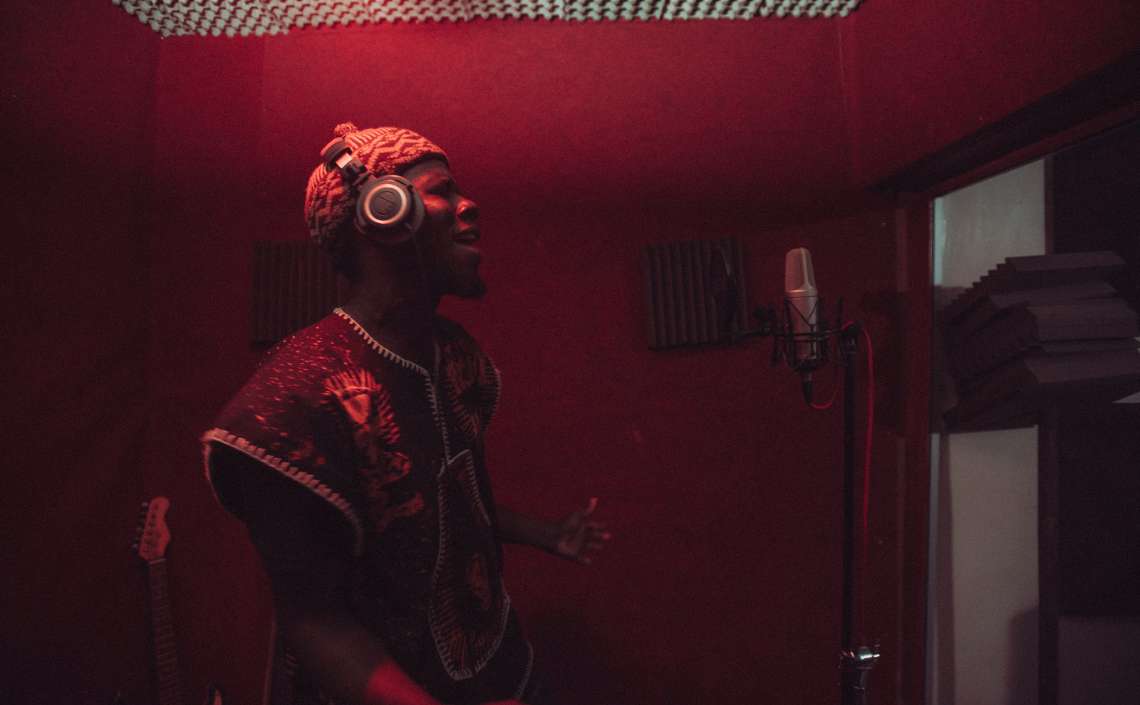Directed by Giulia Rosco, Feneen depicts the current urban and music subcultures of the Senegalese capital Dakar's outskirts. By portraying the various facets of the fledgling music industry of the city, it emphasizes the fundamental role of urban subcultures for the many up-and-coming musicians and artists. The career of Giulia Rosco alternates continuously between the world of video and photos, from the production of short films, video clips and documentaries to photo reportage. In recent years, she has worked on authorial projects, asking questions about human rights and gender equality.
- 23-27 OCT 2024
- Manchester, UK
Feneen
Interview with Giulia Rosco
22 March 2024 by Lucia Udvardyova
Can you talk about the genesis of the film, which came about as a collaboration between Italian producer Frank Sativa, Senegalese popstar Leuz Diwane G and Italian-Senegalese rapper F.U.L.A.
The artistic path Feneen (elsewhere in wolof) was born from the framework of the project M.I.G.R.A. (Migration, Employment, Youth, Resilience, Self-employment), funded by the Italian Agency for Development Cooperation and carried out by ONG LVIA, COSPE and CISV and by two local partners CARP and AD. Feneen connects cooperation with the world of music. At first, it was going to be just a song with a video clip, but when we arrived in Senegal, we understood the need to tell and to share the power of urban music in this moment.
The documentary focuses on the current urban and music subcultures of the Senegalese capital, Dakar. How would you describe this current scene? What are its specifics?
In Senegal the urban subculture has a fundamental role in debunking the stereotypical image of the African continent. It is a possibility for young people to develop a civic consciousness, and the chance to create concrete job opportunities in the music industry.
It is not only the art of the music-makers that's depicted in the film, but also the infrastructure that platforms it. How is the music industry in Senegal nowadays? How does it differ from other countries within the continent?
At this moment the music industry is constantly growing. There are so many distribution companies, festivals, concerts and labels. There is a big opportunity to work in all the jobs around the music industry, not just for singers but also for filmmakers, sound engineers or managers. I think it is different from the other countries due to the engagement with social topics. Despite the lack of means, music becomes a metaphor for how things get done in Senegal.
Have you been in touch with the main protagonists since shooting the film? How have their careers developed?
Yes, absolutely. I'm also working with Leuz Diwane G on another song. They are always working on new albums and projects, especially the young artist Magui, who is really growing with new music and collaborations.
You have been involved in the world of filmmaking, photography and reportage. Could you talk about your career in this field?
I started working as a filmmaker in Milan, after two degrees, one in photography and another in filmmaking. I’ve always loved reportage so I’ve focused my work on telling stories. I started as a filmmaker for music, making videos backstage or making of, about the process of a new album or about some feats with different artists. Then, I decided to focus my job on social topics.
In recent years, you have been also focusing on projects on human rights and gender equality. Could you talk about these?
I’ve always been interested in social topics, so I work on different stories with the same intention: gender equality, human rights and climate change. My last work was about ExtremeE, a radical off-road racing series in the most remote corners of the planet impacted by climate change. Eight teams, consisting of one male and one female driver, racing to highlight global issues and inspire the next generation. So, gender equality and climate change in the automotive world.
What are you working on at the moment?
I'm working on a new documentary about Vittorio Arrigoni, a journalist and writer who died in Gaza in 2011. He is so important for his words of peace and his need to “stay human”.





